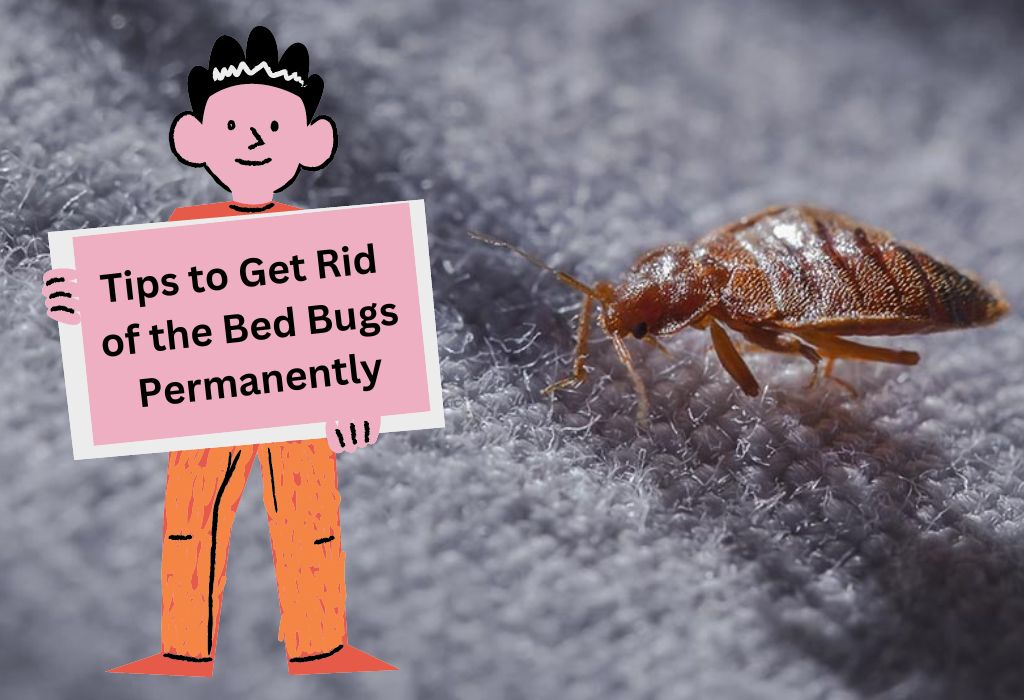
Introduction to Bed Bugs: What They Are and Why They're a Problem
Bed bugs are small, wingless insects that feed on human blood. They are reddish-brown in color, about the size of an apple seed, and can be found in mattresses, bedding, furniture, and even walls. Bed bugs are a significant problem because they can cause itchy, painful bites that can lead to secondary infections. In addition, bed bug infestations can be challenging to get rid of, and they can spread quickly if left unchecked. Knowing how to identify bed bugs and prevent infestations can help you avoid the unpleasant experience of dealing with these pesky pests.
Identifying Bed Bug Infestations: Signs to Look For
Bed bugs can be difficult to spot, as they are small and often hide during the day. However, there are some signs that can indicate a bed bug infestation. Here are some things to look for:
Bed bug bites: Bed bug bites are typically small, red, and itchy, and they may appear in a line or cluster.
Blood stains: Bed bugs can leave small, reddish-brown stains on bedding or other surfaces after they feed.
Shed skins: As bed bugs grow and molt, they shed their skins, which can be found in areas where they hide.
Fecal matter: Bed bugs leave behind dark, rust-colored fecal matter that can be found on bedding or other surfaces.
Live bugs: If you see live bed bugs, that is a sure sign of an infestation.
It's essential to remember that bed bugs can be found in places other than beds, such as upholstered furniture, curtains, and even electronics. If you suspect a bed bug infestation, it's best to call a professional pest control service to confirm and treat the problem.
How Bed Bugs Spread and Why They're So Hard to Get Rid Of
Bed bugs are excellent hitchhikers and can easily spread from place to place by attaching themselves to clothing, luggage, and other items. They can also crawl into nearby spaces, such as walls, floorboards, and electrical outlets, making it challenging to detect and eliminate them.
One reason why bed bugs are so hard to get rid of is that they can survive for several months without feeding. This means that they can lie dormant for long periods, making it difficult to completely eradicate them. Additionally, bed bugs are becoming increasingly resistant to many types of insecticides, making traditional pest control methods less effective.
Another reason bed bugs are challenging to eliminate is that they hide in hard-to-reach places, such as cracks and crevices, making it difficult to find and treat all of their hiding spots. Even if you manage to kill most of the bed bugs, a few survivors can quickly repopulate and start a new infestation.
To effectively eliminate bed bugs, it's essential to use a combination of methods, such as vacuuming, heat treatment, and chemical treatments. It's also important to work with a professional pest control service that has experience in dealing with bed bug infestations. With persistence and the right approach, it is possible to get rid of bed bugs for good.
Prevention Strategies: How to Keep Bed Bugs Out of Your Home
Preventing bed bug infestations is much easier than getting rid of them once they've established themselves in your home. Here are some prevention strategies that can help you keep bed bugs out of your home:
- Inspect second-hand furniture: Before bringing any used furniture into your home, thoroughly inspect it for signs of bed bugs. This includes couches, mattresses, and other upholstered items.
- Keep a tidy home: Clutter provides hiding places for bed bugs, so keep your home clean and tidy. Regularly vacuum your floors and carpets, and avoid leaving piles of clothes or other items lying around.
- Seal up cracks and crevices: Bed bugs can hide in tiny cracks and crevices, so seal up any gaps in your walls, floors, and baseboards to prevent them from entering your home.
- Use bed bug-proof covers: Bed bug-proof mattress and box spring covers can prevent bed bugs from infesting your bedding.
- Be cautious when traveling: When staying in hotels or other lodging, inspect the room for signs of bed bugs, and keep your luggage off the floor and away from the bed.
- Treat infestations early: If you do suspect a bed bug infestation, act quickly to treat it before it becomes a more significant problem.
By taking these steps, you can reduce your risk of a bed bug infestation and keep your home bug-free.
Natural Remedies for Bed Bug Infestations: Essential Oils, Diatomaceous Earth, and More
If you're looking for a natural solution to a bed bug infestation, there are several remedies you can try. Here are some options:
Essential oils: Certain essential oils, such as lavender, peppermint, and tea tree oil, are believed to repel bed bugs. You can mix a few drops of these oils with water and spray it around your home, or add them to a diffuser to disperse the scent throughout your living space.
Diatomaceous Earth: Diatomaceous earth is a type of powder made from fossilized algae that can be used as a natural bed bug killer. The powder is made up of microscopic sharp edges that cut into the bed bugs' exoskeletons, causing them to dehydrate and die. Spread the powder around your home, focusing on areas where bed bugs are likely to hide, such as the seams of mattresses and box springs.
Heat treatment: Bed bugs are sensitive to heat, so exposing them to high temperatures can be an effective way to kill them. You can use a steam cleaner to treat your furniture and bedding or use a specialized heat treatment machine designed specifically for bed bug eradication.
Vacuuming: Regularly vacuuming your home can help to remove bed bugs and their eggs. Be sure to use a vacuum with a HEPA filter, which can trap the tiny bugs and prevent them from escaping back into your living space.
While these natural remedies can be helpful in combating bed bugs, it's important to note that they may not be as effective as professional pest control methods. If you're dealing with a severe infestation, it's best to consult with a pest control professional to ensure complete eradication of the bed bugs.
Maintenance Tips: How to Prevent Future Bed Bug Infestations
Even after successfully eliminating a bed bug infestation, it's important to take steps to prevent future infestations. Here are some maintenance tips to help you keep bed bugs at bay:
Inspect second-hand items: Whether you're buying used furniture or receiving hand-me-downs from family and friends, always inspect the items thoroughly for signs of bed bugs before bringing them into your home.
Encase your mattresses and box springs: Bed bug-proof covers can help prevent bed bugs from infesting your bedding. Be sure to keep the covers on for at least a year to ensure all bed bugs and their eggs have been eliminated.
Keep your home clean: Regularly vacuum your floors and carpets, and keep clutter to a minimum to reduce potential hiding places for bed bugs.
Be cautious when traveling: Bed bugs are commonly found in hotels and other lodging, so always inspect your room for signs of bed bugs before settling in. Keep your luggage off the floor and away from the bed.
Know the signs of an infestation: Early detection is key in preventing a bed bug infestation from becoming a major problem. Keep an eye out for signs such as small brown or reddish stains on your sheets or mattress, shed bed bug skins, and small, apple seed-shaped bugs.
Call a professional: If you suspect a bed bug infestation, don't hesitate to call a professional pest control service. A trained professional can identify the extent of the infestation and recommend the best course of treatment to eliminate the bed bugs for good.
By taking these steps and remaining vigilant, you can help prevent future bed bug infestations and keep your home bug-free.



